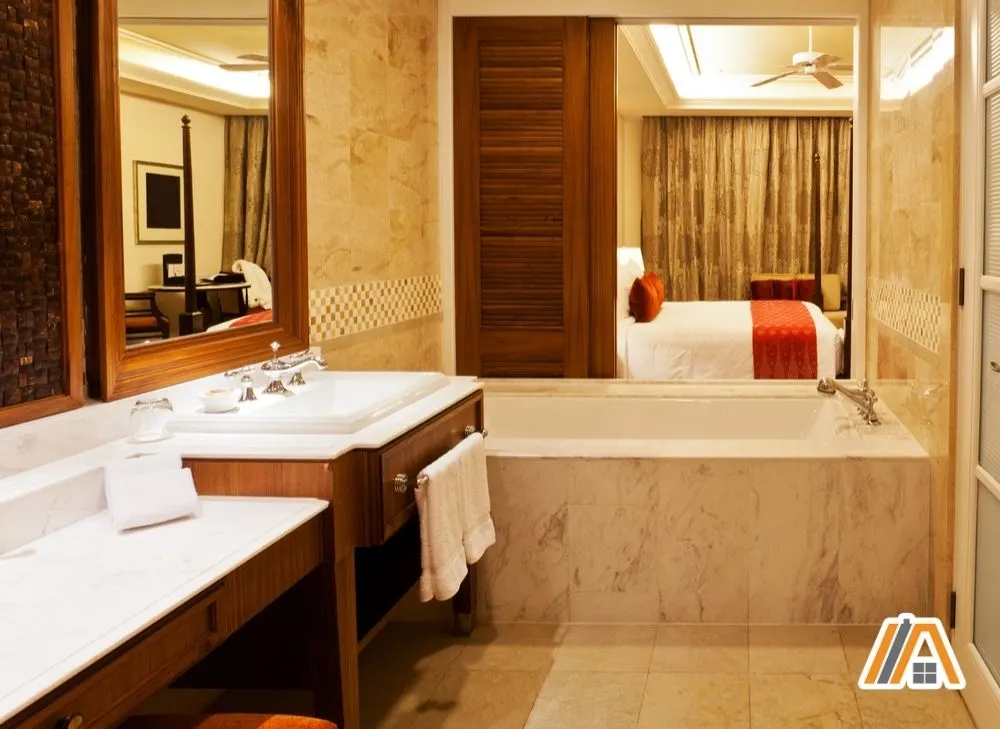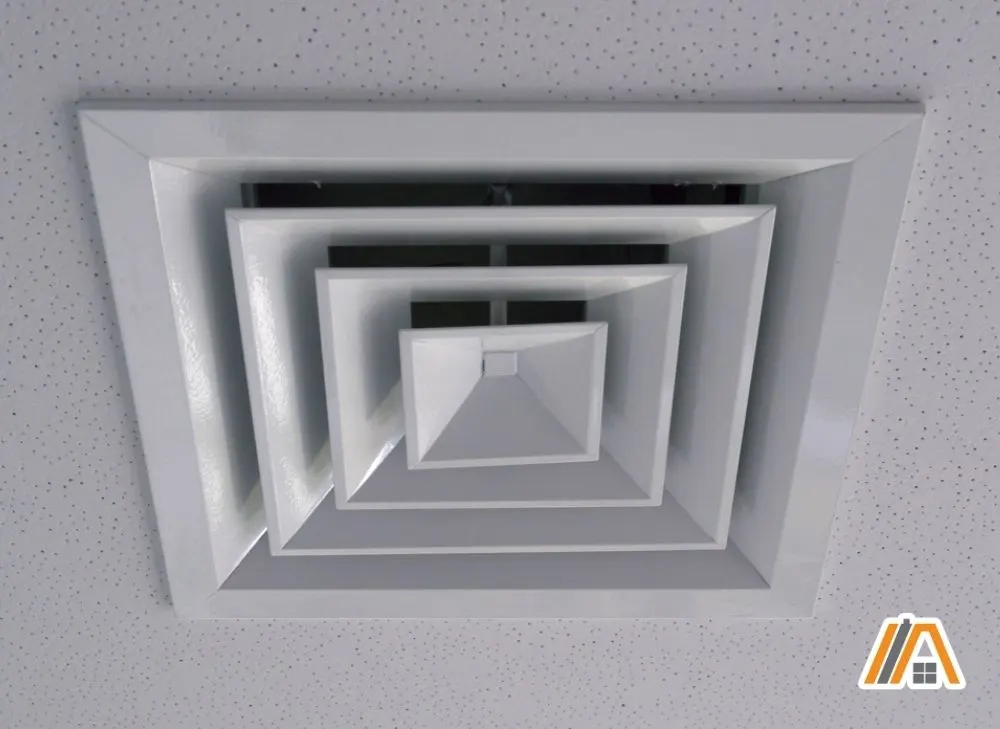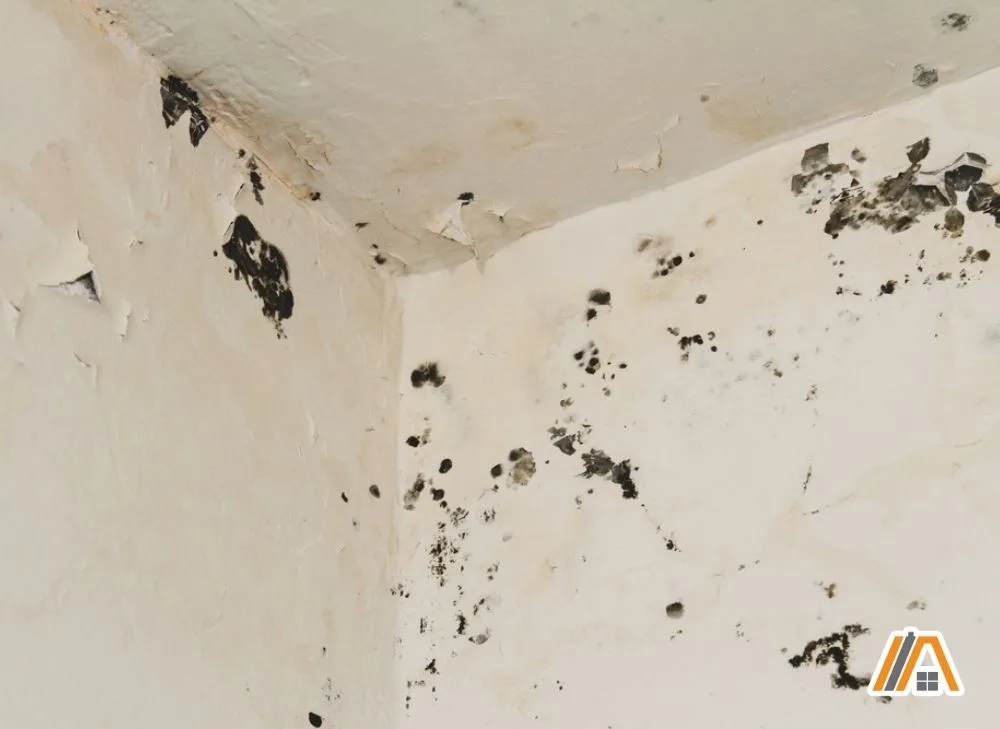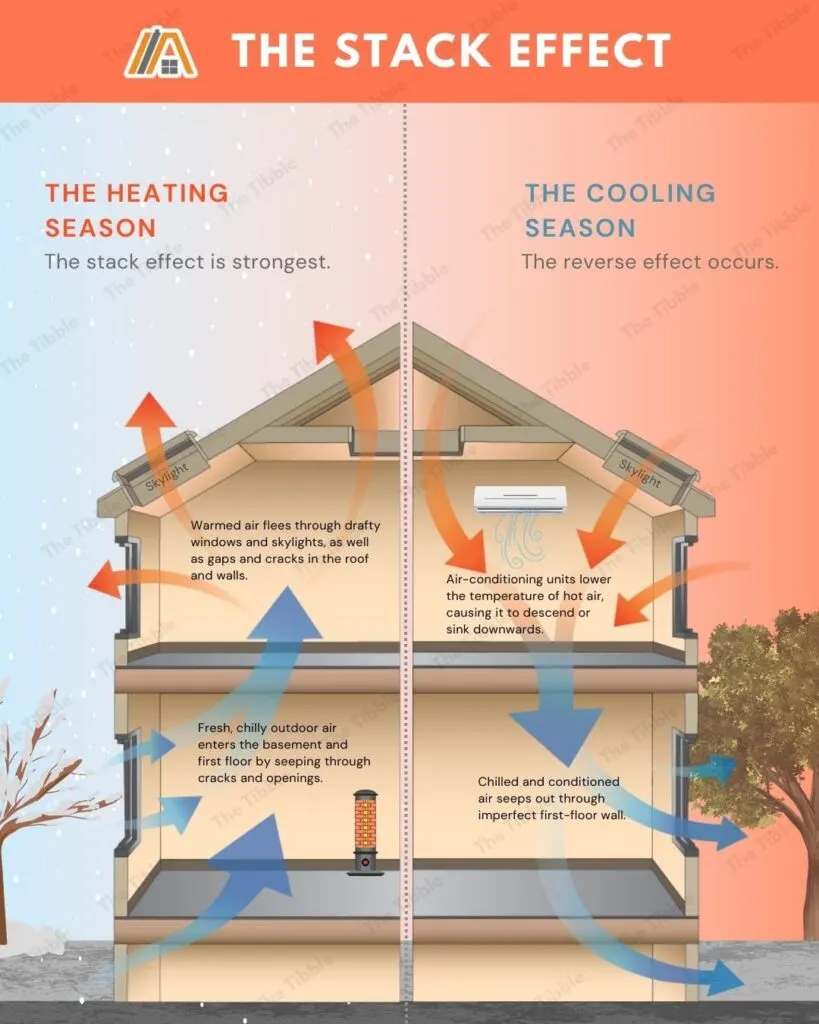The need for a bathroom exhaust fan is evident to anyone who has gotten out of a hot tub or shower and found the bathroom mirrors all steamed up. However, you may have noticed that when you are in a hotel there is often not one installed.
There are important health and environmental reasons for removing moisture from this regularly damp space of our quarters, it’s not just the inconvenience of a steamed-up mirror that should concern us.
Continue reading to learn more about why hotels don’t have bathroom fans and how owners and facilities managers find ways to ventilate their bathrooms.

The main reason hotels don’t have bathroom fans is that the moisture and odors are instead removed by a central climate control system. Further, installing and ducting separate bathroom extractor fans in high-rise buildings is particularly costly, and there is a need to reduce noise levels caused by the fans’ operation.
Bathroom Humidity and IAQ
When it comes to installing an extractor fan in your bathroom at home, there are good reasons for doing so. However, for a variety of reasons, hotel bathrooms seem to be increasingly exempt from this indoor air quality and health precaution.

Hotels and other high-rise buildings are increasingly constructed as sealed units. Some—although this is less so the case with hotels—do not have windows that open.
The Indoor Air Quality (IAQ) of high-rises is controlled instead by a sophisticated air-conditioning system.
The Indoor Air Quality (IAQ) of high-rises is controlled instead by a sophisticated air-conditioning system.
These systems, often more accurately called climate control systems rather than just simple air-conditioning, can precisely control temperature and humidity.
These systems mean that buildings are sealed fairly tight to maintain their maximum efficiency.
HVAC contractors build these systems to provide a continuous circulation of clean, dry, and fresh air throughout the building, including, of course, the hotel bathrooms.
A significant reason for the move away from individual-room extractor fans is the cost of installation and ducting. Designers typically place hotel bathrooms adjacent to the hotel corridors to maximize the window space of the bedroom/living area.
This location means that moist air cannot be easily extracted via an outside wall. It must be ducted long distances along corridors.
Another reason to eliminate an extractor fan from every hotel room is the noise generated by such fans.

Even if the fan is automated to operate only when someone switches the bathroom light on, or if it is on a motion or humidity sensor, these fans can be notoriously noisy.
Multiply that noise by 300 rooms, and your guests may become edgy when their neighbor decides to take a shower at 3:00 in the morning.
Why Do Bathrooms Have Fans?
The bathroom is the wettest place in your home—and your hotel room, of course. As it contains a bath and or shower, a sink, and a toilet, there are plenty of opportunities to emit moisture into the air.
The bathroom also contains its fair share of electronics, from multiple light fittings in the ceiling and over mirrors, to wall sockets for shavers and hair dryers.
Moisture and electricity are not happy companions in this relatively confined space.
So, what happens when you step into that warm tub after a hard day at the office, or you’re under a hot shower after a good workout at the gym? In a word, steam.
A heavy mist vapor forms in the bathroom during bathing or showering, leading to a rise in humidity in the form of moisture droplets on walls and mirror surfaces.
This moisture—if not eliminated—leads to the buildup over time of mildew and mold.
This moisture—if not eliminated—leads to the buildup over time of mildew and mold.
Mold creates unpleasant smells and causes longer-term damage to tile grout, paint, ceilings, and bathroom fixtures and fittings, as well as some potentially severe health issues. In my article about preventing mold in the bathroom, I explain the health dangers of mold.

Bathroom extractor fans are there to remove excessive humidity from the air, reducing the resulting buildup of moisture on walls and surfaces.
Provided that the ventilation system properly moves this moist air to the exterior of the building, the reduction in humidity levels will add to the comfort of the residents.
It will also reduce the need for costly repairs and maintenance as a result of mold and mildew.
Mold and Mildew
Some of the older, more down-market hotels may have a distinctive musty smell when you enter the bathroom. The chances are that this smell is a result of mold or mildew.
Although mold and mildew are both fungi that develop in an environment of moisture and warmth, the difference between them, and how you prevent and eliminate them is important.
Mildew is whitish, grey, or yellow, with a powdery texture. It typically grows on the surface of moist, warm places. You may spot mildew on your shoes or leather handbags that have been left unused in a closet for some time, especially in humid weather.
Mildew is whitish, grey, or yellow, with a powdery texture.
Mold is greenish or black and feels slimy or fuzzy. It thrives underneath surfaces, such as under wallpaper or in the ceiling.
Mildew typically doesn’t damage the surfaces that it contaminates, and you can wipe it off quite easily with a damp cloth. Its health effects are also less threatening, causing only some mild coughing or headaches if inhaled.
Mold infestation is more dangerous. It can damage the structures where it grows and be the cause of some longer-term severe health issues. Eradication of mold and mildew, once infested, and spread too far may well require professional assistance.
However, if you catch it in time and it is a minor infestation you can clean it up yourself. I have put together a quick guide on how to remove mold with vinegar.
In both cases, prevention—through the elimination of moisture—is better than mitigation.
So how do hotels reduce and eliminate bathroom moisture without the use of extractor fans? The answer lies—as with so many other indoor air quality issues—in proper ventilation.
How Do Hotels Ventilate Their Buildings?
We have already mentioned the importance of improved HVAC systems as a solution to hotel bathroom ventilation problems. The answer is a little more complicated than just installing ducted air conditioning.
Most high-rise buildings above three or four stories operate on a combination of two ventilation effects: stack effect and wind.

The stack effect is based on the principle that warm air rises when it’s surrounded by cold air due to the difference in density.
Two factors affect this so-called stack effect. One is the difference in temperature between the building’s inside and outside, and building height is the other.
The effect of wind as a ventilator is highly variable and tends to be more significant in warmer climates and buildings with more “leakage” (e.g., windows that open).
Mechanical systems also play an essential role in ventilation. These can vary in effectiveness, however. At their simplest, a mechanical system means having a large fan on the roof that pushes air down into the building.
This system often means an unequal distribution of air throughout the building, with the upper floors getting more than the legislated minimum 50 cubic feet per minute (CFPM), and the lower levels receiving less.
A 2015 study of a 13-story residential building recommended that ventilated air should be supplied directly to suites to limit the potential loss of air along the flow paths so that the system would not be overwhelmed by the stack effect and wind (source).
The study also found that for the air-conditioning system to be effective, all suites should be airtight and compartmentalized, i.e., they should have their own independently-vented supply of air.
Building Codes and Regulations
The International Building Code (IBC) contains regulations governing the practices used in commercial construction, such as hotels.
However, the rules pertaining specifically to bathroom ventilation, and even more specifically to hotel bathrooms, are scant.
Most building codes will address issues of air quality and the removal of odors and moisture from the air. Still, the installation of an extractor fan is not obligatory, and occupants can achieve ventilation from opening a window. I found this to be quite shocking that an extractor fan is not required when I wrote an article about bathroom fan building codes.

Unfortunately, as we have already seen, most hotel bathrooms adjoin an interior wall and do not have windows.
A hotel’s HVAC system, however, invariably incorporates the necessary venting in the bathroom.
It is worth noting, too, that hotel suites are cleaned daily, which will include the removal of any moisture and sources of dampness, such as wet towels and puddles on the floor.
Indoor Air Quality Research in Hotels
Two independent studies of hotel indoor air quality in Portugal (2011) and Taiwan (2007) made no specific mention of problems with IAQ related to bathrooms (source).
Instead, notable problems in the reports revolved around inefficient ventilation rates, insufficient air exchange rates, and high particle concentrations in some rooms, particularly of formaldehyde.
The researchers attributed the latter to the cleaning materials used in housekeeping.
Final Thoughts
Developments in HVAC systems and IAQ regulation standards over the last decades have ensured that the potential hazards of moisture buildup in hotel bathrooms are usually safely contained.
Guests can enjoy the comfort of a clean and dry hotel room experience without the din of a noisy bathroom fan.

